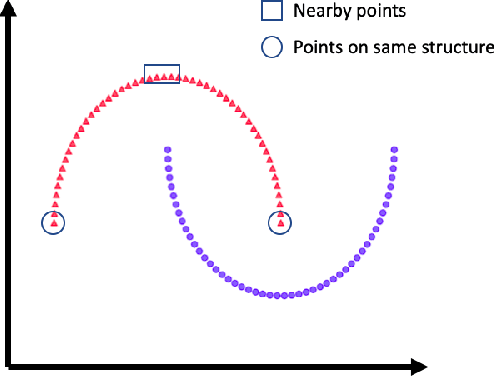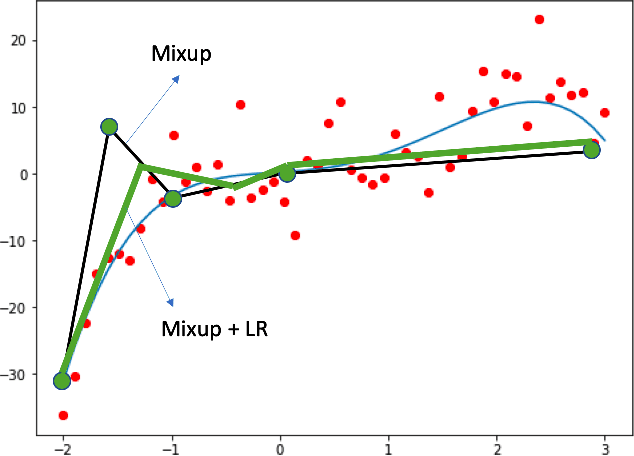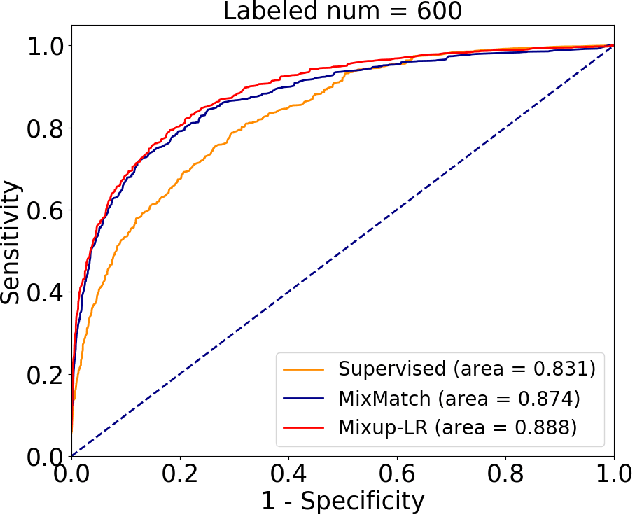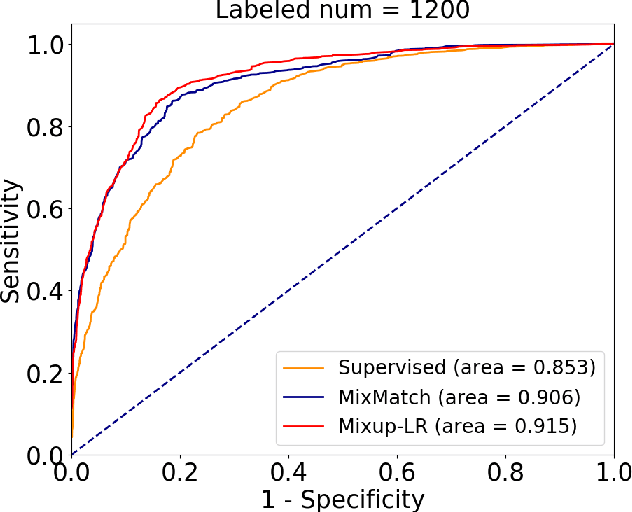Enhancing Mixup-based Semi-Supervised Learning with Explicit Lipschitz Regularization
Paper and Code
Sep 23, 2020



The success of deep learning relies on the availability of large-scale annotated data sets, the acquisition of which can be costly, requiring expert domain knowledge. Semi-supervised learning (SSL) mitigates this challenge by exploiting the behavior of the neural function on large unlabeled data. The smoothness of the neural function is a commonly used assumption exploited in SSL. A successful example is the adoption of mixup strategy in SSL that enforces the global smoothness of the neural function by encouraging it to behave linearly when interpolating between training examples. Despite its empirical success, however, the theoretical underpinning of how mixup regularizes the neural function has not been fully understood. In this paper, we offer a theoretically substantiated proposition that mixup improves the smoothness of the neural function by bounding the Lipschitz constant of the gradient function of the neural networks. We then propose that this can be strengthened by simultaneously constraining the Lipschitz constant of the neural function itself through adversarial Lipschitz regularization, encouraging the neural function to behave linearly while also constraining the slope of this linear function. On three benchmark data sets and one real-world biomedical data set, we demonstrate that this combined regularization results in improved generalization performance of SSL when learning from a small amount of labeled data. We further demonstrate the robustness of the presented method against single-step adversarial attacks. Our code is available at https://github.com/Prasanna1991/Mixup-LR.
 Add to Chrome
Add to Chrome Add to Firefox
Add to Firefox Add to Edge
Add to Edge